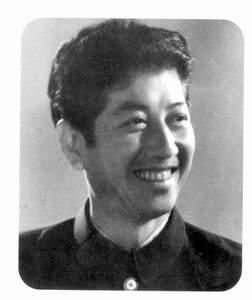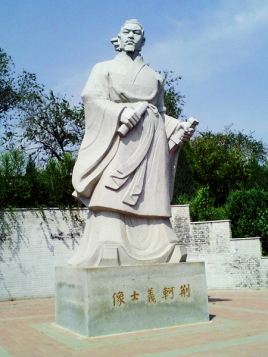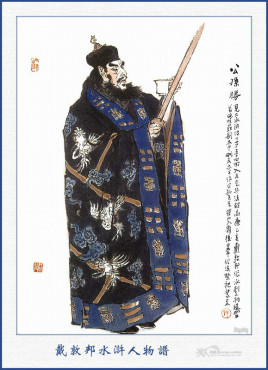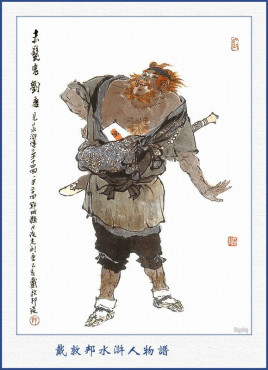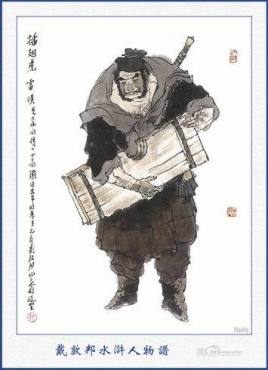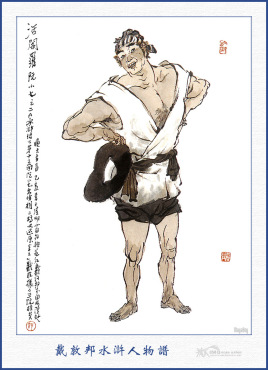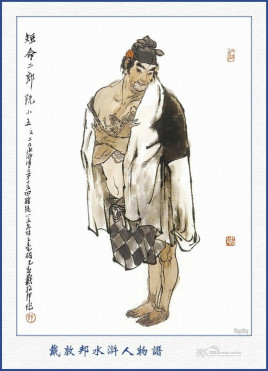英语作文介绍一个中国名人70字左右
写作思路:题目要求介绍一个中国名人,介绍袁隆平,“水稻之父”,写出人物特点。
正文:
Yuan Longping was born in Beijing in 1930.
袁隆平1930年生于北京。
His ancestral home is in Dean County, Jiujiang , Jiangxi Province.
他的祖籍在江西九江德安县。
During the Second Sino-Japanese War and the Chinese Civil War, he moved
with his family and attended school in many
places, including Hunan,Chongqing, Hankou and Nanjing.
在第二次甲午战争和中国内战期间,他和家人一起搬家,在湖南等多个地方上学,重庆、汉口和南京。
Yuan Longping is a Chinese agronomist, known for developing the
first hybrid rice varieties in the 1970s.
袁隆平是一位中国农艺家,因在20世纪70年代开发出第一批杂交水稻品种而闻名。
Hybrid rice has since been grown in dozens of countries in Africa, America,and
Asia—providing a robust food source in areas with a high risk of famine.
从那时起,杂交水稻已经在非洲、美国的几十个国家种植,亚洲为饥荒风险高的地区提供了充足的食物来源.
Yuan is always called the "Father of Hybrid Rice" by the Chinese media.
袁一直被中国媒体称为“杂交水稻之父”。
朱丽华事迹英语作文?
写作思路
朱丽华是2020年感动中国十大人物之一。她的事迹很多很感人,但是我们需要有重点的描写。开头点出来告诉大家朱丽华是感动中国的人物,中间重点介绍她的感人事迹,这个是重点,所以需要3个-5个事件为宜。结尾表达对朱丽华的敬佩感情。
双语范文参考
Model Zhu Lihua
Zhu Lihua is one of the top ten people who moved China in 2020, and her deeds have spread all over the country.
She insisted on donating the college tuition of 46 students through various charity platforms; Donated money to more than 50 poor households to transform their bedrooms and let them spend the winter warm; Make a special trip to Heishui County, ABA, Sichuan to buy water heaters for rural primary schools there so that children can take a hot bath
We should learn from Zhu Lihua's great spirit as the direction of our life and study.
学习榜样朱丽华
朱丽华是2020年感动中国十大人物之一,她的的事迹传遍全国。
她坚持通过各个慈善平台捐助了46名学生的大学学费;给50多户贫困户捐资改造卧室,让他们温暖过冬;专程到四川阿坝黑水县,给那里的乡村小学购买热水器,让孩子们能洗上热水澡……
我们要学习朱丽华的伟大精神,作为我们生活和学习的努力方向。
写作模板参考
Model Zhu Lihua
Zhu Lihua is one of the top ten people who moved China in 2020, and her deeds have spread all over the country.
She insisted on.......................
We should learn from Zhu Lihua's great spirit as the direction of our life and study.
学习榜样朱丽华
朱丽华是2020年感动中国十大人物之一,她的的事迹传遍全国。
她坚持.........................(描写主要事迹2-3件)
我们要学习朱丽华的伟大精神,作为我们生活和学习的努力方向。
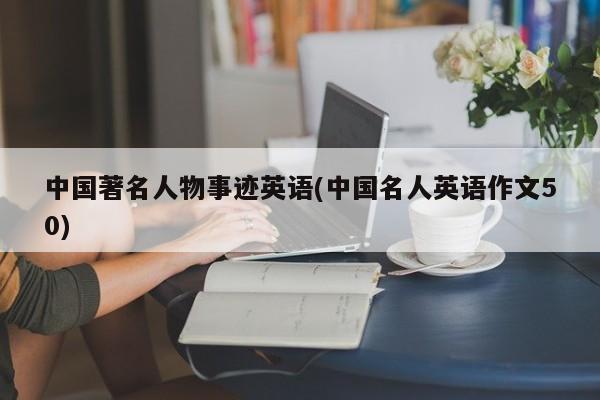
写一篇介绍中国名人的英语作文
英文原文:Dr.sun yatsen was a famous historical person. He was born in Guangdong. Dr.sun yatsen was the father of modern China. He was a great leader, he was against the emperor. He tired to chang China and free the people.
So, I think he loved the people and people loved him.
中文释义:孙中山先生是我国著名的历史伟人,他出生于广东,他被尊称为现代国父,他建立中华民国,他尽力改变中国。他的事迹告诉我们:失败是成功之母,他的精神值得我们学习。
名人故事英文版带翻译(简单的)!!
1、《文天祥少年正气》
南宋末年著名的民族英雄文天祥少年时生活困苦,在好心人的帮助下才有机会读书。
Wen Tianxiang, a famous national hero in the late Southern Song Dynasty, lived in hardship when he was a teenager, and only with the help of good-hearted people did he have the opportunity to read.
一次,文天祥被有钱的同学误会是小偷,他据理力争,不许别人践踏自己的尊严,终于证明了自己的清白,而且通过这件事,更加树立了文天祥金榜题名的志向。
Once, Wen Tianxiang was misunderstood as a thieves by wealthy classmates. He argued that he was not allowed to be trampled on his dignity, and finally proved his innocence. Through this incident, Wen Tianxiang's ambition to be named in the gold roll was set up.
2、《陈平忍辱苦读书》
陈平西汉名相,少时家贫,与哥哥相依为命。
Chen Ping, a famous minister in the Western Han Dynasty, lived in poverty when he was young and depended on his brother.
为了秉承父命,光耀门庭,不事生产,闭门读书,却为大嫂所不容,为了消弭兄嫂的矛盾,面对一再羞辱,隐忍不发。
In order to uphold his father's fate, glorify his family, do not produce and study behind closed doors, he was not tolerated by his sister-in-law. In order to eliminate the contradiction between his brother and sister-in-law, he faced repeated humiliation and hiding.
随着大嫂的变本加厉,终于忍无可忍,出走离家,欲浪迹天涯,被哥哥追回后,又不计前嫌,阻兄休嫂,在当地传为美谈。
With the increasing cost of his sister-in-law, he finally could not bear to leave home, wandering around the world, was recovered by his brother, regardless of past suspicions, to stop his brother and sister-in-law, in the local spread as a beautiful talk.
终有一老着,慕名前来,免费收徒授课,学成后,辅佐刘邦,成就了一番霸业。
Eventually, as an old man, Muming came to teach free apprenticeship. After learning, he assisted Liu Bang and achieved some hegemonic career.
3、《陆羽弃佛从文》
唐朝著名学者陆羽,从小是个孤儿,被智积禅师抚养长大。
Lu Yu, a famous scholar in the Tang Dynasty, was raised by Zen Master Zhiji as an orphan.
陆羽虽身在庙中,却不愿终日诵经念佛,而是喜欢吟读诗书。陆羽执意下山求学,遭到了禅师的反对。
Although Lu Yu was in the temple, he did not want to recite Buddhist sutras and chant Buddhas all day long, but preferred to recite poetry and books. Lu Yu persisted in going downhill to study, which was opposed by Zen master.
禅师为了给陆羽出难题,同时也是为了更好地教育他,便叫他学习冲茶。
In order to solve Lu Yu's problems and educate him better, Zen Master asked him to learn how to make tea.
在钻研茶艺的过程中,陆羽碰到了一位好心的老婆婆,不仅学会了复杂的冲茶的技巧,更学会了不少读书和做人的道理。
In the process of studying tea art, Lu Yu met a kind wife. She not only learned the complicated skills of making tea, but also learned a lot of principles of reading and being a man.
当陆羽最终将一杯热气腾腾的苦丁茶端到禅师面前时,禅师终于答应了他下山读书的要求。后来,陆羽撰写了广为流传的《茶经》,把祖国的茶艺文化发扬光大!
When Lu Yu finally brought a cup of steaming Kuding tea to Zen Master, Zen Master finally agreed to his request to go down to study. Later, Lu Yu wrote the widely circulated "Tea Classic" to carry forward the tea culture of the motherland.
4、《少年包拯学断案》
包拯包青天,自幼聪颖,勤学好问,尤喜推理断案,其家父与知县交往密切,包拯从小耳濡目染,学会了不少的断案知识。
Bao Zheng Bao Qingtian was smart, diligent and inquisitive since childhood. He especially liked reasoning and judging cases. His father had close contact with Zhixian County. Bao Zheng learned a lot of knowledge about judging cases from childhood.
尤其在焚庙杀僧一案中,包拯根据现场的蛛丝马迹,剥茧抽丝。
Especially in the case of burning temples and killing monks, Bao Zheng, according to the spider tracks on the scene, stripped cocoons and drew silk.
排查出犯罪嫌疑人后,又假扮阎王,审清事实真相,协助知县缉拿凶手,为民除害。
After identifying the suspects, he pretended to be the King of Yan and tried to find out the truth, helping Zhixian to arrest the murderers and kill the people.
他努力学习律法刑理知识,为长大以后断案如神,为民伸冤,打下了深厚的知识基础。
He worked hard to learn the knowledge of law and punishment, and laid a solid knowledge foundation for judging cases and defending people's grievances when he grew up.
5、《林则徐对联立志》
林则徐小时候就天资聪慧,两次机会下,作了两幅对联,这两幅对联表达了林则徐的远大志向。
When Lin Zexu was a child, he was talented and wise. He made two couplets under two opportunities. These two couplets expressed Lin Zexu's ambition.
林则徐不仅敢于立志,而且读书刻苦,长大后成就了一番大事业,受到了后世的敬仰。
Lin Zexu not only dared to make a decision, but also studied hard. When he grew up, he made great achievements and was admired by later generations.
中国英雄事迹 英文
林则徐
Lin Zexu (Chinese: 林则徐; pinyin: Lín Zéxú) (August 30, 1785 - November 22, 1850) was a Chinese scholar and official during the Qing dynasty. He is most famous for his active fight against opium smuggling in Guangzhou, which is usually considered to be the primary catalyst for the First Opium War 1839-42.
Lin was born in Fuzhou, in the Fujian province. In 1811 he received the Jinshi degree, the highest title in the imperial examinations, and the same year he was appoinyed to the prestigeous Hanlin Academy. He rose rapidly through various grades of provincial service, and became Governor-General of Hunan and Hubei in 1837.
A formidable bureaucrat known for his thoroughness and integrity, Lin was sent to Guangdong to halt the importation of opium by the British prior to the First Opium War (1838). He confiscated more than 20,000 chests of opium already at the port and supervised their destruction. He later blockaded the port from European ships. Lin also wrote a letter to Queen Victoria of Britain warning her that China was adopting a stricter policy towards everyone, Chinese or foreign, who brought opium into China. This letter expressed a desire that Victoria would act "in accordance with decent feeling" and support his efforts. The letter was however never delivered to the queen but was published in The Times[1] . Open hostilities between China and Britain started in 1839.
Lin's failure to secure a decisive victory against the British led to his replacement by Qishan in September 1840. As punishment for his failures, he was demoted and sent to exile in Ili in Xinjiang. However, the Chinese government still considered Lin to be an official of rare virtue, and sent him off to take care of difficult situations. He died in 1850 while on the way to Guangxi, where the government was sending him to help put down the Taiping Rebellion. He was a patriot of ability who attained an international reputation as "Commissioner Lin." He was opposed to the opening of the country, but felt the need of a better knowledge of foreigners, which drove him to collect much material for a geography of the world. He later gave this material to Wei Yuan, who published an Illustrated Treatise on the Maritime Kingdoms (Hǎiguó túzhì 海国图志) in 1844.
June 3, the day when Lin confiscated the crates of opium, is celebrated as Anti-Smoking Day in the Republic of China in Taiwan. Manhattan's Chatham Square, in Chinatown, contains a statue of Lin, commemorating his early struggle against drug use.
